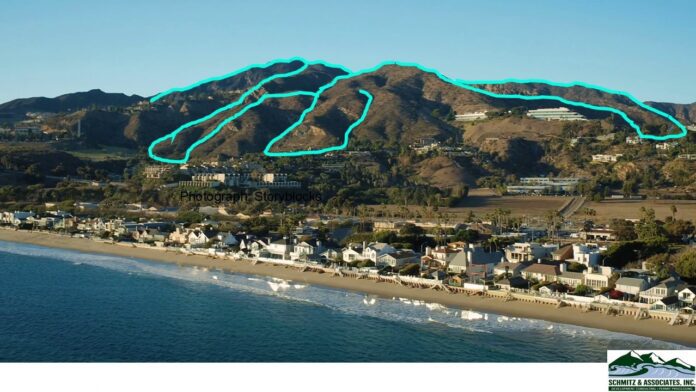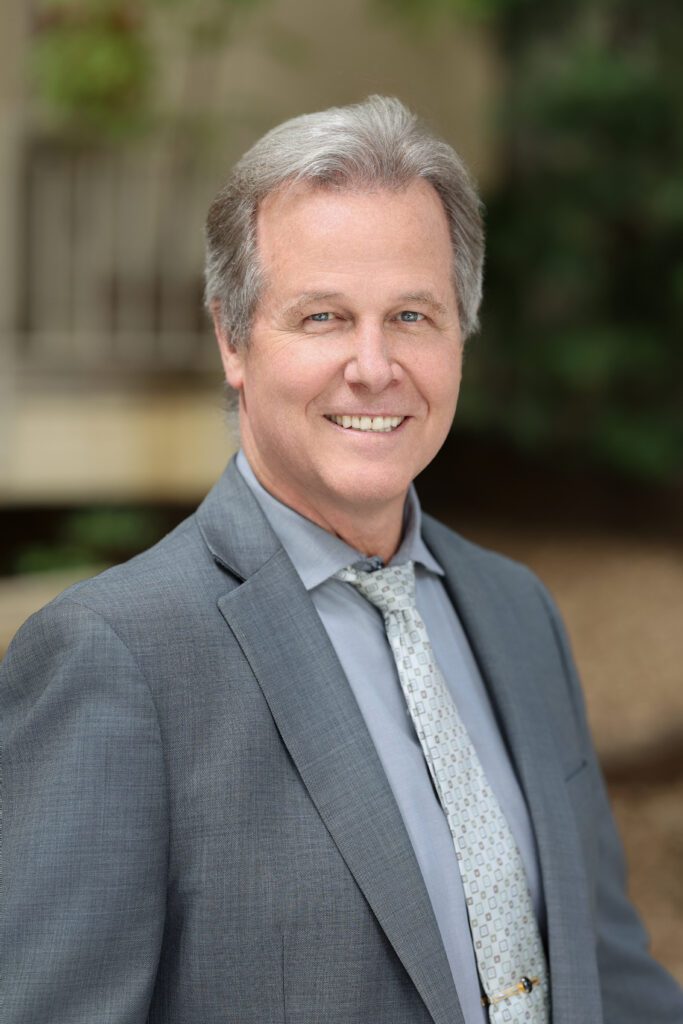
For years, Don Schmitz has championed installing water tanks along the Santa Monica Mountains to stop wildfires
For years, Don Schmitz, a local land-use planning consultant experienced in working on complex, multi-jurisdictional projects, has been proposing his idea to better battle wildfires as they rage in the Santa Monica Mountains before they reach Malibu. After the Woolsey Fire, he gave a large, well-attended presentation at Pepperdine about the subject, as he has done many times. Those in attendance lauded his ideas, while, as is perennially the case in the world of politics at every level, nothing came of it. Nevertheless, he continues to campaign for his idea.

Schmitz’ concept for preventing unbridled wildfires in the Santa Monica Mountains from devastating Malibu is quite simple: We should install a series of enormous water tanks along the ridgelines of the Santa Monica Mountains where firefighters establish fire breaks.
Why? To provide water sources to battle the wildfires and put them out before they progress forward and attack Malibu. The water tanks would, Schmitz explains, serve as another weapon in firefighters’ tool kits and would serve as a force multiplier. They would not, he emphasizes, replace the need for firefighters to wage war against fires on foot and with fire engines, for air assets to fight conflagrations from above, or for residents to diligently employ fire mitigation efforts such as brush clearance and deploying voracious flocks of goats to graze their way through foliage.
In the past, people’s trepidations concerning Schmitz’s proposal have ranged from maintaining that the concept is impractical, that it could be exorbitantly expensive, that it cannot be accomplished, or, that as Bill Sampson, the new president of the Malibu Town Council, posits, it merely evinces that Schmitz has an ulterior motive in suggesting the proposal, to wit, that he wants to install the water tanks to facilitate his desires to more fully develop the Santa Monicas.
The series of water tanks could at least conceptually make Malibu and properties in the Santa Monicas safer, as would Schmitz’s suggestion that a series of rainbirds be placed in the mountains to help fight spot fires. As to the latter proposal, he displays the proper agricultural full circle irrigation sprinklers in his office — the type capable of withstanding the onslaught of a wildfire.
Schmitz’s suggestions place policymakers at the perennially interesting, yet often infuriating, intersection of realpolitik and political will. The former political science term — in its most pure iteration — refers to political leaders focusing on practical objectives when making decisions that will impact communities, and in this context, that would mean that the multitudinous governmental agencies and nonprofit organizations that own land along ridgelines in the Santa Monica Mountains would have to coordinate efforts to install large water tanks that would provide sufficient water to fight fires.
The latter term refers to policymakers having the strength and tenacity to actually support and implement a difficult, yet potentially lifesaving expansive firefighting system across many acres on land owned by many agencies, organizations and private parties.
“You’d have to have the necessary support of officials at all levels of government to install the water tanks,” Schmitz opined, as he has stated previously. In his 2019 presentation after the devastating Woolsey Fire, he stated, “What we just witnessed is completely preventable in terms of mass destruction and is a result of a 50-year long experiment in land use — the County stopped maintaining fire breaks and the government stopped prescribed burns.” The same can safely be said about the devastation caused by the Palisades, Franklin and Broad fires in Malibu.
Why communally discuss a long-term project amid Malibuites’ disaster recovery challenges?
Readers may query about the utility or wisdom of considering Schmitz’s suggestions when the community is facing immense hurdles as it grapples with how to best and most expeditiously rebuild 700 homes, underground some utility lines, engage in deliberations concerning whether to install a sewer system in parts of eastern Malibu, do what it can to minimize the impacts of the fire debris on our beaches and ocean, and implement strategies to help struggling small businesses survive. Schmitz readily and pragmatically responds to such queries by noting that we all know other fires will besiege us, we need to learn from the past and prepare in every way we can for future disasters and importantly, if we are to try to install a system of water tanks, we need to start as soon as possible.
What we need is a master plan to address disasters, Schmitz emphasizes, noting that the Palisades Fire is such a phenomenal cataclysm that the community leaders should seize the day, seek funding and cooperation from government agencies at every level, and focus on long term strategies while also addressing the short term, daunting and pressing imperatives of rebuilding Malibu.
Schmitz is the founder and president of the Coalition for Fire Safe Communities, a nonprofit organization he established in 2007. He vows to carry on his efforts to urge the installation of the fire tanks and rainbirds, noting that his doggedly advocating for his proposals is not merely academic. Rather, he too well understands at the visceral level what experiencing the effects of a fire ravaging through land one owns is like because he has had his property and some structures harmed by past wildfires.
“What we do know is that the losses caused by fires are immense and escalating,” he emphasizes. “The system of water tanks and rainbirds would establish a firefighting asset that would never leave once installed.”
In sum, he notes, such a system “would give us a better fighting chance when waging war against wildfires and I know we’re all tired of getting beaten by them.”
